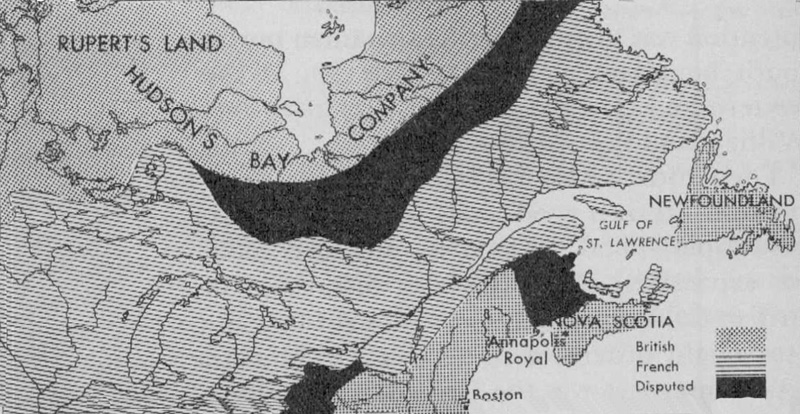
HISTORICAL EVENTS THAT TOOK PLACE ON THIS DAY IN CANADA
11 April

Britain and France Sign Treaty of Utrecht
The Treaty of Utrecht signed by Britain and France on April 11, 1713, ended the war that made the Duke of Marlborough famous. Before becoming a duke, he was John Churchill, the most distinguished member of his family until Sir Winston Churchill gave leadership to the free world in 1940-1945.
It took Britain and France fifteen months to work out the details of the Treaty of Utrecht. Both sides made concessions. France gave up Hudson Bay and Newfoundland, although Iberville had captured them, and also Acadia to the British. She retained Canada (New France) , Cape Breton and Prince Edward Island (called the Island of St. John) to protect the entrance to Canada via the St. Lawrence River. France also kept her possessions in what are now the United States and West Indies.
Nominally, there was a long period of peace between Britain and France after the Treaty of Utrecht, but preparations were made for war. France began building the mighty fortress at Louisburg and tried to persuade the Acadians to move there. The land at Louisburg was not suitable for farming, so the Acadians stayed where they were, even though it meant living under British rule. They made it clear, however, that they would never take up arms against France if there was a war. This led to their expulsion.
Eventually, Britain had to develop an army and naval base at Halifax to counteract the French fortress at Louisburg.
One troublesome feature of the Treaty of Utrecht was its failure to establish a border between Nova Scotia and Massachusetts (New Brunswick and Maine did not exist) . Sometimes, the border was said to be the St. Croix River, as it is today, but there were other occasions when France claimed the territory as far south as Boston. This resulted in a number of raids by the British and French on each other's settlements. The French joined the Abenaki Indians in a number of fierce sorties into Massachusetts and massacred entire communities.
In the long run, the Treaty of Utrecht resulted in France's losing her North American possessions, including Canada.
OTHER NOTABLE EVENTS ON THIS DAY IN CANADIAN HISTORY
11 April
-1617 Champlain brought Louis Hébert to Canada as the first permanent settler. 1768 Montreal was badly damaged by fire.
-1872 The fifth session of the First Parliament began; legislation included legalizing the trade unions.
-1884 The Amateur Athletic Union of Canada was formed.
-1904 Sydney, Nova Scotia, was incorporated as a city.